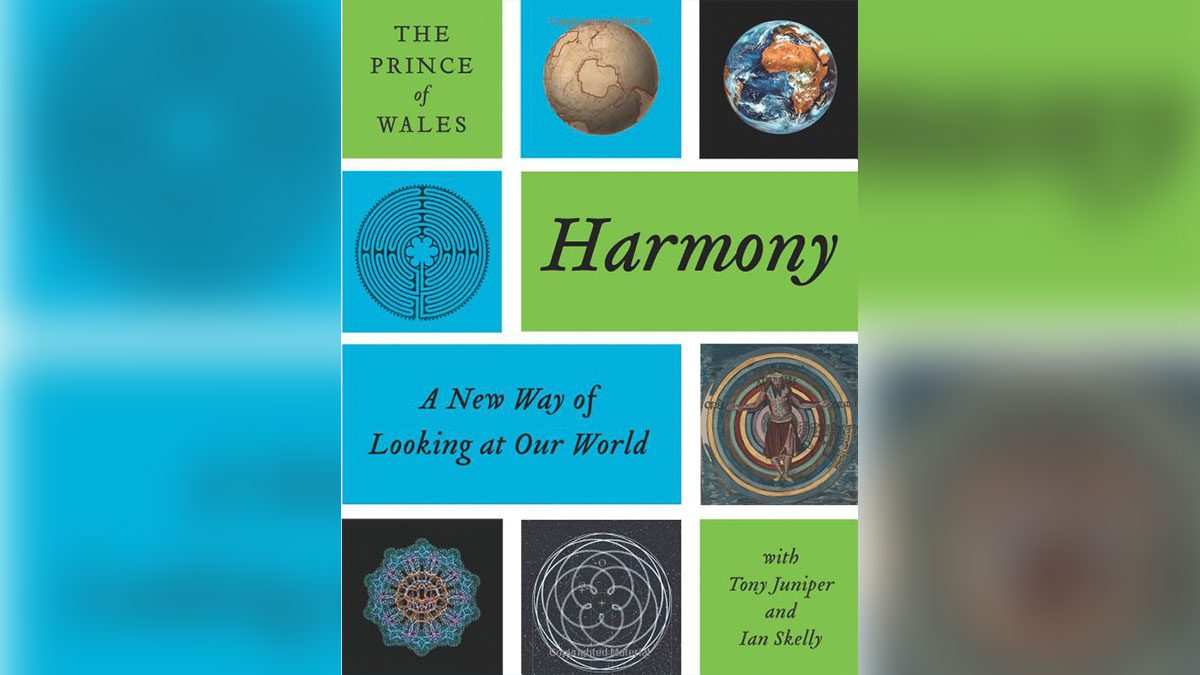The Prince of Wales [Charles Windsor], Harmony: A New Way of Looking at the World.With Tony Juniper and Ian Skelly. HarperCollins Publishers Inc., 2010
This book is about climate change and, more broadly, the need to restore a harmonious relationship between humanity and nature. It was written, with a certain amount of help from two prominent environmentalists, by the man who until recently was known as Prince Charles and is now enthroned as King Charles III of the United Kingdom. In fact, Charles is the author of several books, including two on climate change, the other — Climate Change (2017) – written specially for children. He also had a film produced to go with the book.
In the book under review, written in an appealing and easily readable personal style, Charles does three things.
First, he describes the various aspects of climate change, environmental degradation, and loss of biodiversity. He explains the science in a clear and. accessible way. The text is enhanced by an impressive collection of color photographs.
Second, Charles presents some examples of post-mechanistic practice that merit emulation. He devotes considerable attention to the need to abandon factory farming and return to organic farming. In 1985 he converted the thousand acres of the Duchy of Cornwall Home Farm near Highgrove House, his residence in the west of England, to organic production methods.
Third, the author argues that the basic cause of the ecological crisis is the rise to dominance of a ‘mechanistic’ mode of thinking – a development that he associates with industrialization. He contrasts this mechanistic approach with the more integrated worldview that prevailed in pre-industrial times and traces its origins back to Ancient Egypt.
Perhaps Charles somewhat idealizes the pre-industrial world. The Caledonian chieftain Calgacus is renowned for saying of the Romans: ‘They create a desert and call it peace.’ If the Romans never achieved a scale of destruction comparable with that of our era, was that not only because they lacked the technological means?
That, however, is not the main shortcoming in Charles’ effort at theory. There is, after all, a great deal of truth in his critique of mechanistic thought. Nowhere, however, does he really explain why this mode of thought should have become so prevalent over the last two and a half centuries. What purpose does it serve? Might it not have something to do with capitalism? Mechanistic thinking seems ideally suited to the drive to maximize profits.
Charles talks about technologies and their impact on the environment. And he talks about modes of thought and perception. Those are both important aspects of the problem, but they are not the only important aspects. There is also the matter of the system of social relationships. Charles has little to say about that.
The little that he does say, however, suggests that he does view the economic system as a crucial aspect of the problem. He urges people to ‘think constructively about how to build a better economic system for the future’ (p. 79). He complains that ‘a few giant corporations control more or less the whole food production and distribution system’ (p. 22). Like so many others, he may be engaging in self-censorship in order not to appear ‘too radical.’ Even if this is so, however, his stance is probably anti-corporate rather than anti-capitalist.
Now that Charles is king, he is less free than ever to speak his mind. Prime Minister Liz Truss has told him not to go to Egypt for the COP27 climate change conference next month. Journalists have the temerity to order him to ‘bite his tongue’ and ‘zip his lip.’ It hardly seems worth being ‘king’ when it means you get to be bullied so. Maybe the time is ripe for a Royal Liberation Movement to win for monarchs the civil rights already possessed by most of their subjects.



